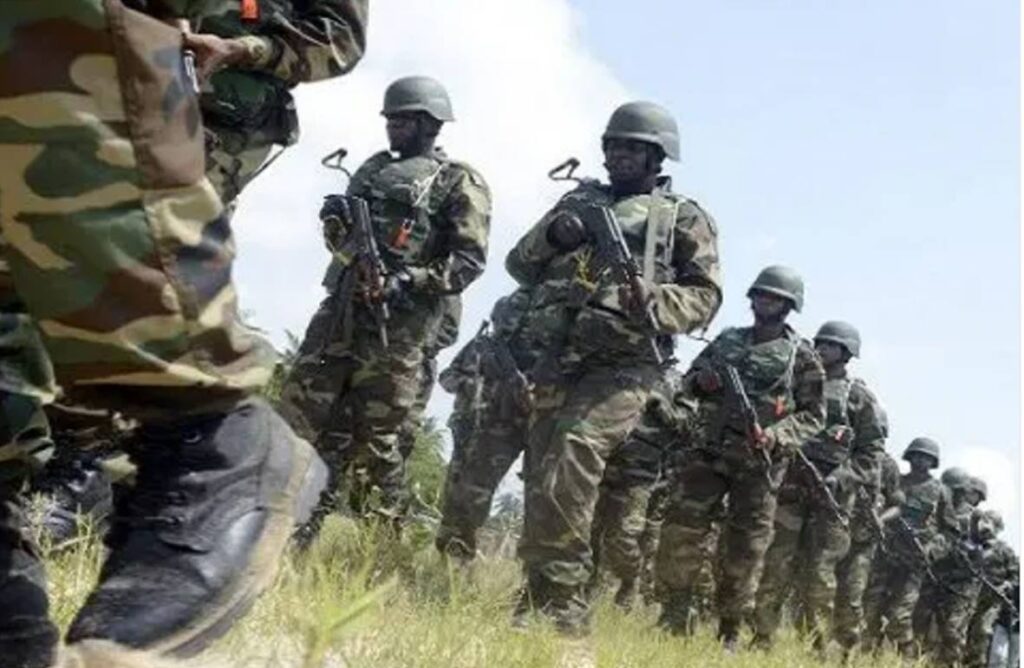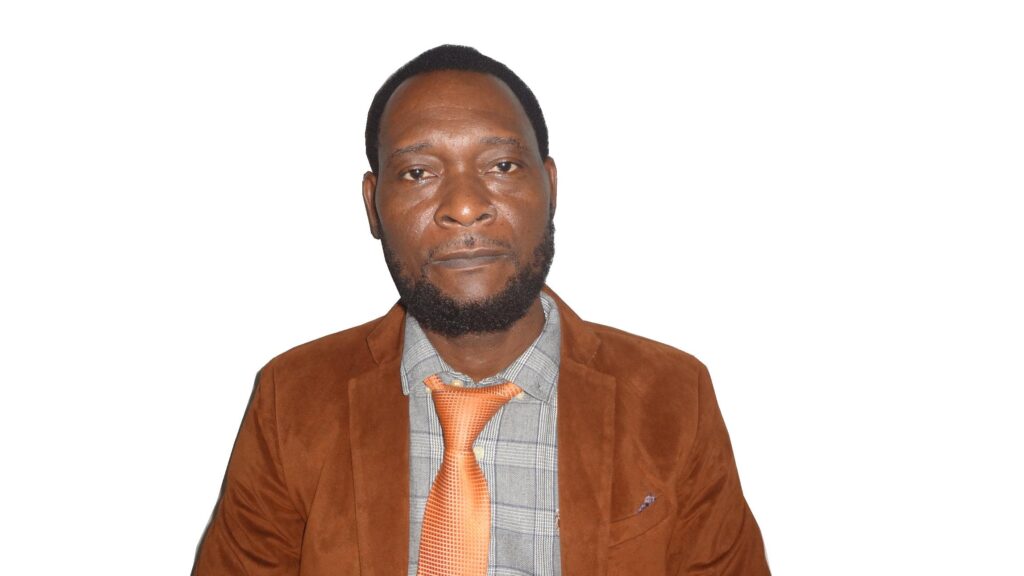GistNexus – April 7, 2025.
Two Nigerian soldiers—an Army captain and a corporal—were killed in a Boko Haram attack on the troops’ outpost in Izge village, Gwoza Local Government Area of Borno State, in the early hours of Sunday, April 6. The terrorists, who were well-armed, invaded the troops’ base with rocket-propelled grenades (RPGs) at around 1:00 AM in an ambush, triggering a fierce battle that lasted for several hours.

The BBC reports that the attack on Izge mirrors a trend of recent attacks which have targeted Nigerian army bases in other parts of Borno State, including Wajirko and Wulgo villages. Those earlier attacks also resulted in heavy casualties for the Nigerian Army, mirroring an alarming escalation of Boko Haram’s attack in the region.
Related News
More than 20 Nigerian Soldiers Killed in ISWAP Attack on Army Base in Borno State
The Attack: RPGs and Armed Insurgents
The Izge village attack began around 1:00 AM when the Boko Haram terrorists, in a surprise attack, overrun the military position with RPGs. The attack led to a heavy exchange of fire between the Operation Hadin Kai troops and the terrorists. The firefight continued for hours, and there were casualties on both sides.
While the attackers were being confronted by the military, the locals, vigilantes, and hunters in the area played a crucial role in repelling the attack. Their involvement was significant in causing the insurgents to retreat, despite the challenge presented by the heavily armed attackers. Izge locals, some of whom were asleep when the attack began, rallied to assist the military in defending their area and their soldiers.
Boko Haram’s Enduring Threat: A Decade of Insurgency
This Izge attack occurred just weeks after the same incidences in the region. Over the past fortnight, military formations in Wajirko in Damboa Local Government Area and Wulgo in Gamboru Ngala had also been attacked by heavily armed Boko Haram terrorists with heavy casualties. These back-to-back attacks reveal the persisting and escalating menace of Boko Haram in northeast Nigeria, particularly in Borno State, a hotbed of the insurgency.
Izge, which is strategically situated deep inside the Sambisa Forest and about 20 kilometers southwest of Gwoza town, has been a frequent target by Boko Haram. The village’s location renders it a key area to be held by the insurgents since it opens various routes used by the militants for mobility and logistics in the region.
Resilience and Support from the Local Community
Despite the destruction and chaos caused by the attack, the residents in Izge demonstrated remarkable resilience. Villagers spontaneously organized themselves to assist the Nigerian Army in repelling the insurgents. The locals, vigilantes, and local hunters were quite helpful in assisting the military, which eventually led to the retreat of the terrorists.
One of the locals in Izge reported what occurred, stating that despite being asleep when the attack was launched, the locals quickly organized to support the troops in pushing back the insurgents. The resident stated that while a large number of the Boko Haram terrorists were eliminated during the battle, the attackers’ survivors also quickly mobilized to evacuate the bodies of their fallen colleagues from the scene.
The bravery of the residents, who put their own lives at risk to help repel the attack, was later praised by a number of officials, including Senator Mohammed Ali Ndume, who represented Borno South.
Senator Mohammed Ali Ndume’s Response
Senator Mohammed Ali Ndume, representing Borno South in the Nigerian Senate, was in a state of great concern over the repeated attacks by Boko Haram in his constituency. While he appreciated the efforts of the military and other security agencies, he insisted that more decisive action must be taken to stem the tide of the insurgency.
Ndume urged the federal government to supply more advanced and technological machinery, including drones, to aid the military in fighting Boko Haram. He argued that these technologies could guarantee better intelligence and support that would lead to the insurgents’ rapid defeat.
Related News
More than 20 Nigerian Soldiers Killed in ISWAP Attack on Army Base in Borno State
As a former Senate Committee Chairman on the Army, Ndume also called on the federal government to adopt a holistic approach in addressing the northeastern Nigeria security issues. This includes training, equipping, arming, and motivating the armed forces and other security agencies to be capable of combating the current security threats by terrorism, kidnapping, and banditry in the zone.
Casualties and Official Confirmation
While the residents of Izge reported the attack, like the killing of the Army captain and corporal, efforts to obtain confirmation from the Nigerian Police on the full scale of the casualties were unsuccessful. ASP Kenneth Daso, Borno State Police Public Relations Officer, was unavailable for comment.
However, the Executive Chairman of Gwoza Local Government Area, Hon. Abba Kawu Idrissa Timta, confirmed the attack. He equally confirmed that the terrorists were killed in the exchange but said he had not yet gotten full information on the casualty sustained by the military personnel who participated in the battle.
The Need for Technological War and Beefed-up Security
Senator Ndume’s suggestion to deploy sophisticated technology to combat Boko Haram resonates with the concerns of many stakeholders in the region. The insurgency has caused devastation in northeastern Nigeria over the last decade, with thousands of civilians and soldiers killed. The fact that the conflict has continued unabated has impacted the day-to-day lives of millions of people, with many displaced from their homes by the fighting.
To combat the growing menace, Ndume has suggested that the federal government invest in drones, surveillance equipment, and other high-tech solutions to enhance the military’s ability to track and destroy insurgent groups. The technologies would provide much-needed backup to ground troops, providing them with real-time intelligence and allowing them to respond to attacks more efficiently.
Besides, Ndume reechoed that the military and other security operatives must be adequately equipped and motivated to enable them to carry out their activities effectively. He emphasized training programs for military officers to enable them to respond to the evolving tactics and strategies being adopted by Boko Haram and other militant groups operating in the region.
The Way Forward: Sustaining the Momentum Against Boko Haram
As the Nigerian government continues its onslaught against Boko Haram and other insurgent movements in Nigeria, the problem lingers. Despite the courage of the military and residents, the insurgents have been resourceful and relentless, adapting with evolving security realities in their quest to destabilize the country.
Moving forward, it is essential that the Nigerian government focuses on both short-term military responses and long-term solutions to the root causes of insurgency. Investments in infrastructure development, economic development, and community engagement will be necessary to prevent extremism from expanding and improve the security situation in Borno State and other conflict-affected areas.
While the Nigerian army has been successful in recapturing territory from Boko Haram, the war is far from over. The collaboration of local communities, like that exhibited by the residents of Izge, will continue to be a vital component of the general strategy to defeat the insurgency and bring lasting peace to the area.
A Collective Effort for Lasting Peace
The tragic killing of an Army captain and a corporal in the Izge onslaught highlights the extent of danger Nigeria’s troops are exposed to in attempting to combat terrorism in the northeast. However, the fact that the troops, and indeed locals, exhibited bravery demonstrates that the dislodgment of Boko Haram is everyone’s task, and that the military and locals have to act in concert to repel attacks and recover territory.
Since the insurgency continues to afflict troubled northeastern Nigeria, it is clear that a comprehensive, multi-faceted approach needs to be utilized to address the crisis. The utilization of advanced technologies, better military hardware, and greater local support will be critical in ushering in enduring peace and stability in the region.
Related News
More than 20 Nigerian Soldiers Killed in ISWAP Attack on Army Base in Borno State

Reported by GistNexus and edited by Mr. Chibueze Onwuka
